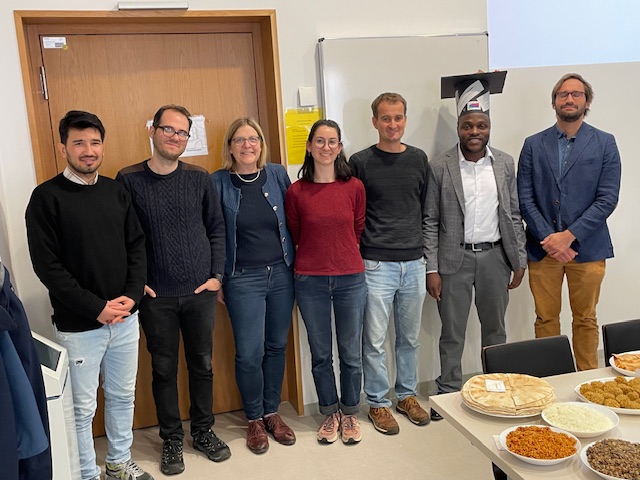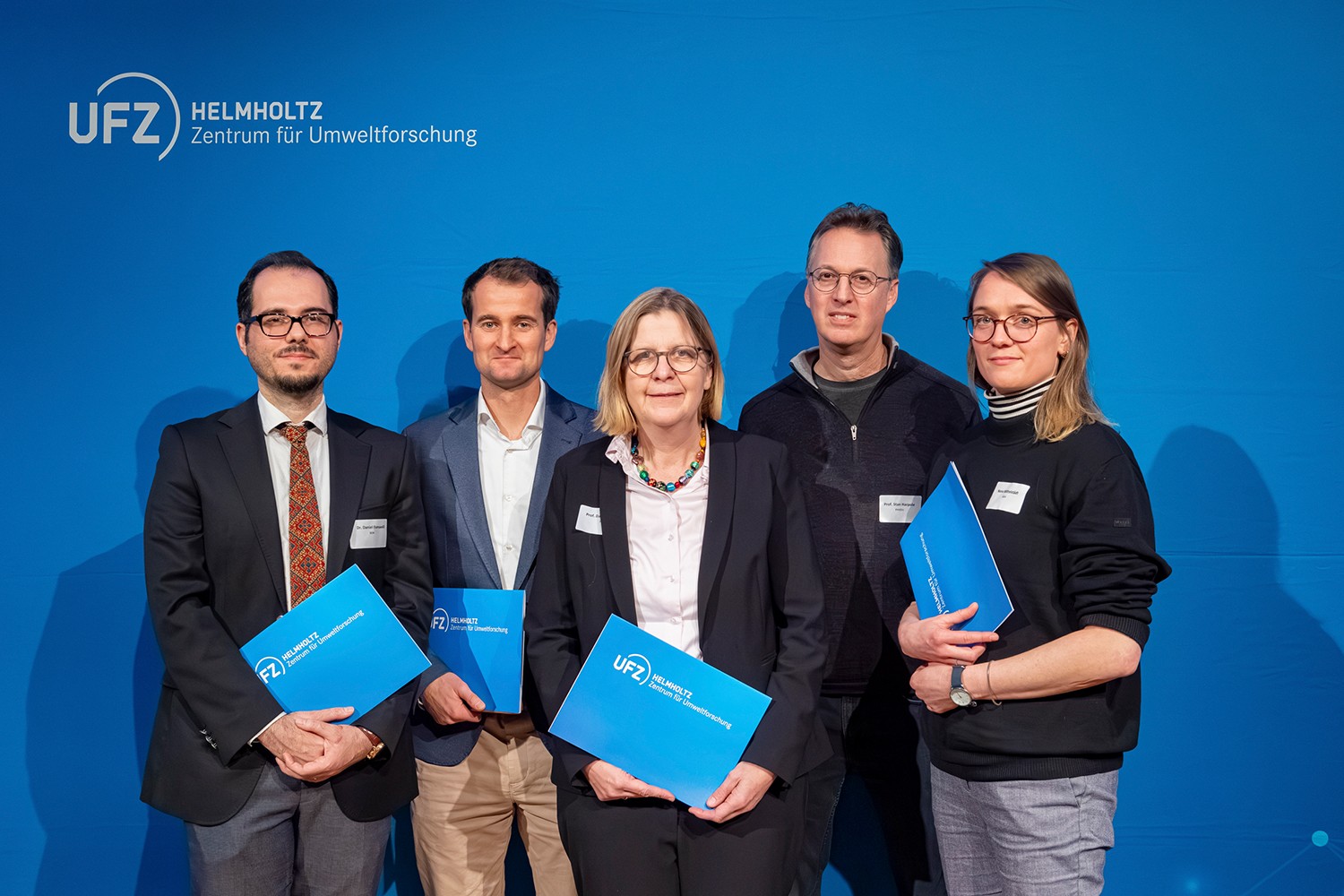
BENOPT(ex)
Model family for investigating future transformation scenarios for energetic biomass usage in the transport, power, heat sectors and chemical industries. The latest published versions are available online with and open source license: BENSIM / BENOPT.
Model documentation for BENOPT: Millinger et. al., 2022; Jordan et. al., 2022;
Commits to the model:
Contacts:
Danial Esmaeili Aliabadi
Matthias Jordan
Mohammad Sadr
Sandra Gutjahr
Ágnes Csilla T. Szabó
Isabella Kreller
Alumni:
The extended BioENergy OPTimization model (BENOPTex) has been developed to simulate the competition between various bioenergy technology options. BENOPTex is a perfect foresight optimization model designed to optimally allocate dispatchable renewable energy carriers across different sectors. It aims to achieve two main objectives: maximizing the greenhouse gas (GHG) abatement and cost minimization while meeting specific energy or GHG targets. Additionally, BENOPTex enables Pareto analyses to be performed by combining these objective functions.
BENOPTex encompasses multiple sectors, including transport (road passenger, road goods, rail, shipping, and aviation), power and heat (industry, household, and commercial), and chemical industries. It also includes relevant areas of the non-energy sectors such as forestry, agriculture, soil management, and wetland management to effectively evaluate LULUCF targets for GHG reduction. The model operates yearly, except for residual load demand and surplus power usage, which can be analyzed hourly. BENOPTex is spatially detailed to the level of NUTS-1 and integrates detailed input-output, CAPEX, and OPEX data for feedstocks, conversion, and supply (vehicle data is planned). This integration allows for comprehensive cost analyses and, when combined with relevant emission factors, thorough GHG analyses.
Stand-alone versions focusing on chemical products (Frazer Musonda) as well as on the heat sector (Matthias Jordan) have been developed.
Milestones 2030 (simulation: power, heat, fuels)
BEPASO (optimization: power, heat, fuels, chemicals)
BioPlanW (optimization: heat)
BKSQuote (optimization: fuels)
TATBio (optimization: power, heat, fuels)
BEniVer (optimization: biofuels and electrofuels)
AGRI-TRANSFORM (optimization: all sectors, including food)
SmartWirbelschicht, KonditorGas (optimization: incl. advanced technologies in heat)
SoBio, BIOSTRAT, Symobio 2.0 (optimization: power, heat, fuels)
SoBio ll (optimization: bioeconomy)
Man0EUvRE (optimization, integrated view, EU)
News and Updates
- Frazer Musonda's PhD dissertation defense on the 26th of September 2026 at Leipzig University.

- Winning the UFZ Research Award 2024 for their achievements in realizing sustainable biomass use for climate neutrality in Germany.

- 2023.07 - The first paper regarding the new graphical user interface of the BENOPTex model has been published.
Publications:
Cyfka, A., Jordan, M., Vollmers, J., Thrän, D. (2026): The future role of agroforestry and Agri-PV in the German energy system - An analysis with the BENOPTex model. Energy Conv. Manag.-X 10.1016/j.ecmx.2026.101614
Esmaeili Aliabadi, D., Wulff, N., Lehneis, R., Sadr, M., Gutjahr, S., Reutter, F.J., Jordan, M., Lehmann, P., Thrän, D. (2025): Climate change may impair the transition to a fully renewable energy system: A German case study. Energy 338, art. 138684 10.1016/j.energy.2025.138684
Wulff, N., Esmaeili Aliabadi, D., Samuel, H., Pregger, T., Özcan, D., Gils, H.C., Kronshage, S., Ruiz, E.S.A., Grimme, W., Horst, J., Jochem, P. (2025): Energy system implications of demand scenarios and supply strategies for renewable transportation fuels. Energy Strateg. Rev. 58, art. 101606: 10.1016/j.esr.2024.101606
Sadr, M., Esmaeili Aliabadi, D., Jordan, M., Thrän, D. (2024): A bottom-up regional potential assessment of bioenergy with carbon capture and storage in Germany. Environ. Res. Lett. 10.1088/1748-9326/ad7edd
Jordan, M., Meisel, K., Dotzauer, M., Schindler, H., Schröder, J., Cyffka, K.-F., Dögnitz, N., Naumann, K., Schmid, C., Lenz, V., Daniel-Gromke, J., Costa de Paiva, G., Esmaeili Aliabadi, D., Szarka, N., Thrän, D. (2024): Do current energy policies in Germany promote the use of biomass in areas where it is particularly beneficial to the system? Analysing short- and long-term energy scenarios. Energy Sustain. Soc. 14 , art. 32 10.1186/s13705-024-00464-1
Sadr, M., Esmaeili Aliabadi, D., Avşar, B., Thrän, D. (2024): Assessing the impact of seasonality on bioenergy production from energy crops in Germany, considering just-in-time philosophy. Biofuels Bioprod. Biorefining https://doi.org/10.1002/bbb.2602
Musonda, F., Millinger, M., & Thrän, D. (2024): Modelling assessment of resource competition for renewable basic chemicals and the effect of recycling. GCB Bioenergy, 16, e13133. https://doi.org/10.1111/gcbb.13133
Esmaeili Aliabadi, D., Chan, K., Wulff, N., Meisel, K., Jordan, M., Österle, I., Pregger, T., Thrän, D. (2023): Future renewable energy targets in the EU: Impacts on the German transport, Transportation Research Part D: Transport and Environment, 124, 103963: https://doi.org/10.1016/j.trd.2023.103963
Jordan, M., Meisel, K., Dotzauer, M., Schröder, J., Cyffka, K.-F., Dögnitz, N., Schmid, C., Lenz, V., Naumann, K., Daniel-Gromke, J., Costa de Paiva, G., Schindler, H., Esmaeili Aliabadi, D., Szarka, N., Thrän, D. (2023): The controversial role of energy crops in the future German energy system: The trade offs of a phase-out and allocation priorities of the remaining biomass residues. Energy Reports, 10, 3848 - 3858: https://doi.org/10.1016/j.egyr.2023.10.055
Esmaeili Aliabadi, D., Manske, D., Seeger, L., Lehneis, R., Thrän, D. (2023). Integrating knowledge acquisition, visualization, and dissemination in energy system models: BENOPTex study. Energies 16 (13), art. 5113: https://doi.org/10.3390/en16135113
Millinger, M., Tafarte, P., Jordan, M., Musonda, F., Chan, K., Meisel, K., & Aliabadi, D. E. (2022). A model for cost-and greenhouse gas optimal material and energy allocation of biomass and hydrogen. SoftwareX, 20, 101264: https://doi.org/10.1016/j.softx.2022.101264
Jordan, M., Millinger, M., & Thrän, D. (2022). Benopt-Heat: An economic optimization model to identify robust bioenergy technologies for the German heat transition. SoftwareX, 18, 101032: https://doi.org/10.1016/j.softx.2022.101032
Lauer, M., Dotzauer, M., Millinger, M., Oehmichen, K., Jordan, M., Kalcher, J., ... & Thraen, D. (2022). The Crucial Role of Bioenergy in a Climate‐Neutral Energy System in Germany. Chemical Engineering & Technology: https://doi.org/10.1002/ceat.202100263
Mutlu, Ö., Jordan, M., Zeng, T., & Lenz, V. (2022). Competitive Options for Bio‐Syngas in High‐Temperature Heat Demand Sectors: Projections until 2050. Chemical Engineering & Technology: https://doi.org/10.1002/ceat.202200217
Aliabadi, D. E., Chan, K., Jordan, M., Millinger, M., & Thrän, D. (2022, April). Abandoning the Residual Load Duration Curve and Overcoming the Computational Challenge. In 2022 Open Source Modelling and Simulation of Energy Systems (OSMSES) (pp. 1-6). IEEE: http://doi.org/10.1109/OSMSES54027.2022.9769166
Musonda, F., Millinger, M., Thrän, D., (2021): Optimal biomass allocation to the German bioeconomy based on conflicting economic and environmental objectives. J. Clean Prod. 309, art. 127465: http://dx.doi.org/10.1016/j.jclepro.2021.127465
Jordan, M., Hopfe, C., Millinger, M., Rode, J., Thrän, D., (2021) Incorporating consumer choice into an optimization model for the German heat sector: Effects on projected bioenergy use. J. Clean Prod. 295, art. 126319: http://dx.doi.org/10.1016/j.jclepro.2021.126319
Millinger, M., Tafarte, P., Jordan, M., Hahn, A., Meisel, K., Thrän, D. (2021): Electrofuels from excess renewable electricity at high variable renewable shares: cost, greenhouse gas abatement, carbon use and competition. Sustainable Energy & Fuels 5 (3): 828-843: http://dx.doi.org/10.1039/D0SE01067
Meisel, K., Millinger, M., Naumann, K., Müller-Langer, F., Majer, S., Thrän, D., (2020): Future renewable fuel mixes in transport in Germany under RED II and climate protection targets. Energies 13 (7), art. 1712: http://dx.doi.org/10.3390/en13071712
Musonda, F., Millinger, M., Thrän, D., (2020): Greenhouse gas abatement potentials and economics of selected biochemicals in Germany. Sustainability 12 (6), art. 2230: http://dx.doi.org/10.3390/su12062230
Jordan, M., Millinger, M., Thrän, D., (2020): Robust bioenergy technologies for the German heat transition: A novel approach combining optimization modeling with Sobol’ sensitivity analysis. Appl. Energy 262 , art. 114534: http://dx.doi.org/10.1016/j.apenergy.2020.114534
Jordan, M., Lenz, V., Millinger, M., Oehmichen, K., Thrän, D., (2019): Future competitive bioenergy technologies in the German heat sector: Findings from an economic optimization approach. Energy 189 , art. 116194: https://doi.org/10.1016/j.energy.2019.116194
Millinger, M., Meisel, K., Thrän, D., (2019): Greenhouse gas abatement optimal deployment of biofuels from crops in Germany. Transport. Res. Part D-Transport. Environ. 69 , 265 - 275: https://doi.org/10.1016/j.trd.2019.02.005. Open source model available here: https://doi.org/10.5281/zenodo.2812986
Millinger, M., (2018): Systems assessment of biofuels : modelling of future cost and greenhouse gas abatement competitiveness between biofuels for transport on the case of Germany. Dissertation, Universität Leipzig, Wirtschaftswissenschaftliche Fakultät. PhD Dissertation 3/2018. Helmholtz-Zentrum für Umweltforschung - UFZ, Leipzig, XVII, 92 pp.
Millinger, M., Meisel, K., Budzinski, M., Thrän, D., (2018): Relative greenhouse gas abatement cost competitiveness of biofuels in Germany. Energies 11 (3), art. 615: https://doi.org/10.3390/en11030615. Open source model available here: https://doi.org/10.5281/zenodo.2810903
Millinger, M., Thrän, D., (2018): Biomass price developments inhibit biofuel investments and research in Germany: The crucial future role of high yields. J. Clean Prod. 172 , 1654 - 1663
Millinger, M., Ponitka, J., Arendt, O., Thrän, D., (2017): Competitiveness of advanced and conventional biofuels: Results from least-cost modelling of biofuel competition in Germany. Energy Policy 107 , 394 - 402
Thrän, D., Arendt, O., Banse, M., Braun, J., Fritsche, U., Gärtner, S., Hennenberg, K.J., Hünneke, K., Millinger, M., Ponitka, J., Rettenmaier, N., Schaldach, R., Schüngel, J., Wern, B., Wolf, V., (2017): Strategy elements for a sustainable bioenergy policy based on scenarios and systems modeling: Germany as example. Chem. Eng. Technol. 40 (2), 211 - 226
Thrän, D., Schaldach, R., Millinger, M., Wolf, V., Arendt, O., Ponitka, J., Gärtner, S., Rettenmaier, N., Hennenberg, K., Schüngel, J., (2016): The MILESTONES modeling framework: An integrated analysis of national bioenergy strategies and their global environmental impacts. Environ. Modell. Softw. 86 , 14 - 29
